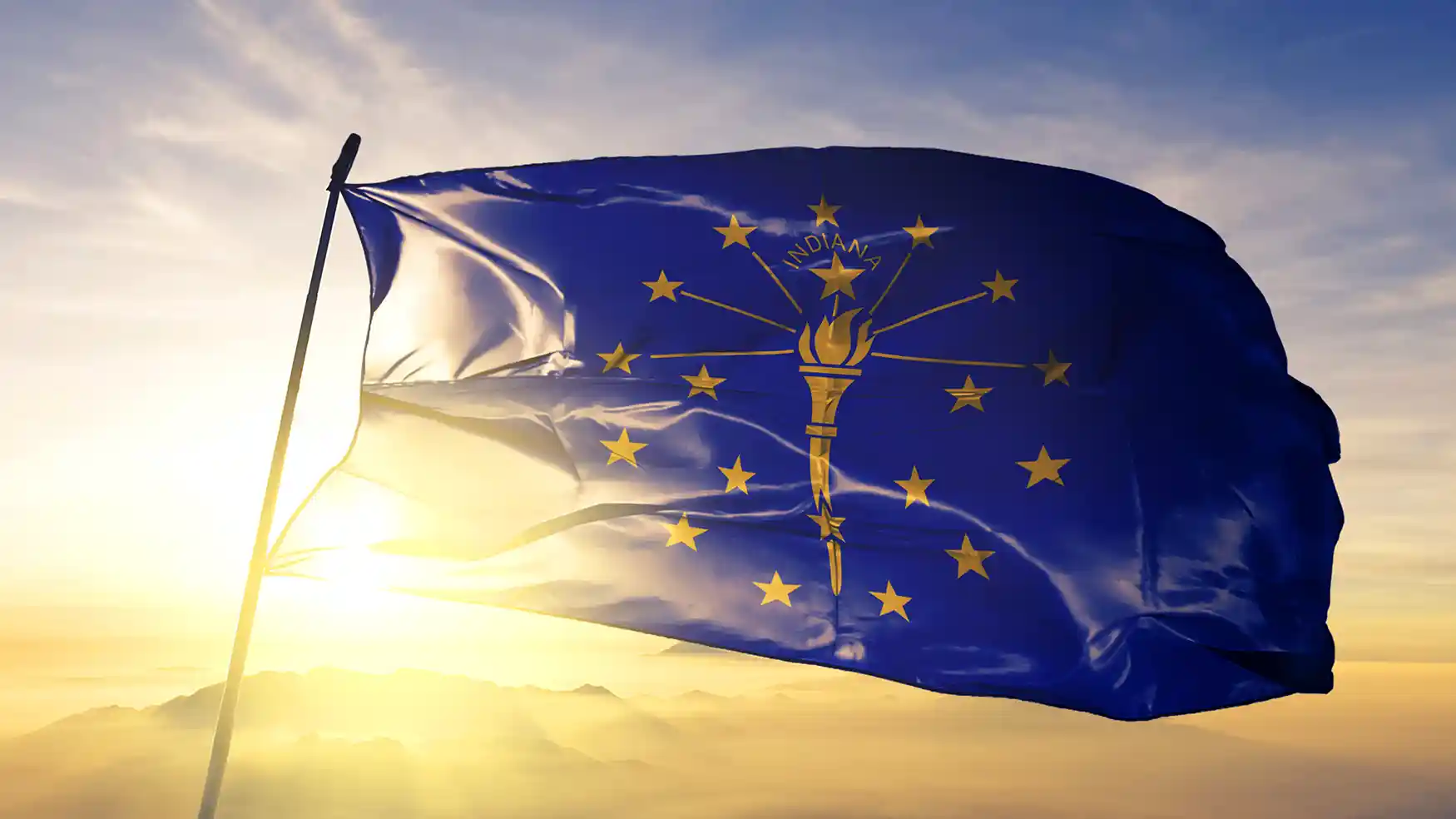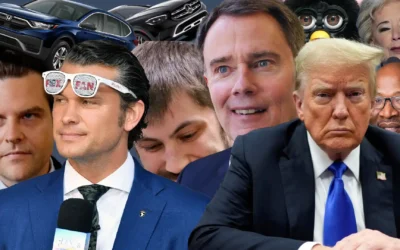The phrase “all politics is local” has been around since the 1930s, as far as we can tell.
For most of a century, it highlighted the need for politicians to be focused on local issues and to build relationships on the local level to win office.
In the last few years, all politics have become anything but local.
Our local politicians are increasingly focused on national issues
- Abortion
- Immigration
- Transgender rights
- “Democracy”
- Gun Rights
- etc.
Last year, during our municipal elections, someone asked me, “What is the city council candidate’s position on guns and abortion!?”
Um…who cares.
The city council has no power over gun rights or abortion bans. City councilors are largely focused on potholes and zoning disputes (generalization, of course).
Someone was going to cast their vote in the city council race based on a city councilor’s position on guns and abortion, which are not remotely under their purview, instead of things they can impact like the city budget, money for police, etc.
I believe that because so much of the local electorate is focused on national issues, our local politicians have become so, too, and it’s killing our Democracy.
It might be why so many of our local and state political campaigns seem to be focused on “Other guy bad. Me good.” messaging.
Historic Interest with Historically Low Turnout
This election season, I watched state democrats run a campaign that looked like it had some chance of competing in our traditionally ruby-red Indiana.
When the votes were in, the Dems got trounced in similar fashion to what we saw nationally.
Voting totals in my hometown of Indianapolis show the lowest voter turnout for a presidential cycle in my lifetime.
Ouch.
For Democrats to have a remote chance of winning, they needed to see historic turnout in left-leaning counties like Marion County (Indianapolis). Instead, they got historically low turnout.
Inside the democratic bubble, it seemed like there was a ton of momentum. Candidates like Destiny Wells (Attorney General) and Jennifer McCormick (Governor) seemed to be rising stars with broad appeal.
As it turns out, if you talk to people outside the bubble…folks really didn’t know much about them or who they were, other than maybe what they’ve seen on attack ads during last week’s football game.
McCormick had been Indiana State Superintendent of Public Instruction, and Wells had run for Secretary of State in the last cycle.
Still…not nearly as popular or well known among average voters as social media led us to believe.
The Current State of Play in Indiana
The current state of politics in Indiana is this…
- Republicans own the state
- Democrats own Indianapolis
For the most part, if you have blood in your veins, air in your lungs, and are a Republican, you will win a statewide race. Democrats need not apply.
On the flip side, if you’re a living, breathing Democrat in Indianapolis, you’re in. Republicans need not apply.
On both sides, candidates show up in election season as relative unknowns and hope to win. Almost every time, this results in the same results every time. Democrats in Indy. Republicans statewide.
For all of the bluster both parties spit out, this has been unchanged most of my adult life.
I believe it can change, but our focus needs to change.
A Roadmap for 2030?
It’s time for both state parties to make politics local again.
The practice of showing up 12-15 months ahead of election day to run in a primary and expecting to beat the incumbent party hasn’t worked, and it won’t work.
For the opposition party to have any chance of pulling votes from the other party, they need to be known, liked, and trusted across party lines for years ahead of an election.
Showing up a year out and heading around to all of the party dinners and rallies ain’t gonna do it.
For example, Jim Banks won his US Senate seat by almost 600,000 votes this year.
If Democrats want to beat him in 2030, showing up in 2029 for a statewide primary won’t work. You might win your primary, but you’ll get slaughtered on election day.
The same applies to Republicans in Indianapolis. Last year, incumbent Mayor Joe Hogsett beat his Republican challenger Jefferson Shreve by 19%.
I’ve lived in Indianapolis my entire life and am reasonably involved, and had never heard of Shreve until he announced his run. Shreve largely won his primary due to his personal fortune and ability to out-spend the other primary candidates. He had been a city councilor before but was not widely known to unengaged voters.
Become Known as Someone Who Helps NOW
For a Democrat to have a chance at even competing with Jim Banks in 2030 (let alone beat him), they need to start today.
Spend the next 5 years becoming known in rural Indiana as someone who shows up, cares, and finds ways to help (yes, even helps Trump Republicans).
Build relationships with people of all political ideologies and show them you care about them.
In the end, relationships will trump (no pun intended) political party.
The same goes for our Indy Republicans. Get out of the party events and show up in communities you don’t play well in.
I’ve heard from a number of local black residents variations of “Republicans only show up in our neighborhoods during election season.”
Show up. Help. Solve Problems. Build relationships.
Show up to community events. Go to town halls. Learn the hyper-local issues facing residents and, when you can, offer to help.
Quick Story: MAGAs for Democrats?
Last year, during our municipal races, I was talking with a very conservative friend. This friend isn’t just conservative; they actually said, “If I had known ahead of time, I’d have been there on January 6.”
Yes, they are that intensely right-wing.
Still, this person said they were 100% supporting our Democrat incumbent city council member. Why? Because he shows up and does everything he can to help, regardless of whether you’re a Republican or Democrat, voted for him or didn’t. If he can help, he does.
After four years of showing up, helping solve local problems, and showing genuine care for his constituents, he snagged quite a bit of cross-party support.
Republicans put up a candidate, but that candidate barely poked his head out. It was more of a ceremonial saving of face for the local party.
Build a Personal Brand
One thing that certainly hurt our local Republican candidate for mayor in 2023 was his puny social media following. So often, these candidates are starting from zero.
You need to start building a personal brand years before you run for office.
- Grow a social media following
- Build a robust email list
- Get phone numbers for calling/texting
Don’t make the mistake of growing a following around partisan issues. The LAST thing you need is a bunch of people who would have already voted for you in your digital network. Focus on nonpartisan issues. Don’t attack people. Build respect.
Too many candidates rely on their local parties to get the ball rolling.
Today on Facebook…
- Indianapolis Republicans – 3200 followers
- Indianapolis Democrats – 3700 Followers
- Indiana Republican Party – 37,000 followers
- Indiana Democrat Party – 33,000 followers
Indianapolis has about 880,000 residents. Indiana has about 6.8 million residents.
Each party has a social following that is a minuscule fraction of their electorate.
I don’t know how many folks they have on their email lists, but relying on either party to have the reach you need to win is not smart.
Grow your social following and then leverage it into email subscribers. That way, when you launch a campaign, you potentially have thousands of people ready to support you, and you can reach them with the click of a button.
If you do it right, many of them will be across party lines and ripe for peeling away from your opponent. Especially if your opponent just came out of nowhere to run.
If you do this well, people will feel like they KNOW you. Politics is about relationships.
Is It Even Possible?
To spend five years working behind the scenes to build relationships, solve problems, and grow a personal brand is a mountain of a task.
I’m not sure it’s a reasonable ask of anyone.
You can’t launch a campaign 5 years out and start raising money, so most of this work will be on your own time and your own dime.
Unfortunately, that probably limits it to potential candidates with personal wealth. That has pros and cons in itself.
However, I don’t see another way for an opposition party candidate to have a fighting chance in the coming years in hard-leaning cities and states.
In our world of constant connectedness, people want to feel like they know the people they’re supporting. If they don’t, they’re just going to “pull the lever” for whichever party they affiliate with, and nothing ever changes.
What About National Races?
Obviously, this level of retail politics is hard to do nationally.
Any time a potential candidate shows up in Iowa mid-term, it sets off alarm bells for the national media.
Part of the problem is our primary system. It forces Presidential candidates to start in the obvious early primary states, and not the swing states they’ll need to actually be elected nationally.
It also forces primary candidates to take hard-line positions on hot-button issues that don’t play well in the general election.
I do think potential candidates can leverage digital/alternative media to build a personal brand years before running.
Show up on Rogan, Von, Pod Save America, Shapiro, and other top podcasts as often as possible. Show up and show that you care for all Americans and can have a civil and spirited conversation on issues they really care about in both friendly and hostile territory.
Start a Podcast or YouTube show (both) and build your brand on your turf.
These can be done relatively inexpensively but require the person to be extremely sharp and personable to go on some of these shows and hold their own, as well as build their platform.
OK, Let’s Wrap it Up
Personally, I’m tired of candidates who run for office without having spent significant time on the ground before launching a campaign. Especially locally.
Too often, I see local candidates pop up, lose, and disappear. That shows me they didn’t care in the first place.
The bottom line is this: if people don’t know, like, AND trust you, they will NOT be willing to hop party lines to support you, and you will lose.










0 Comments